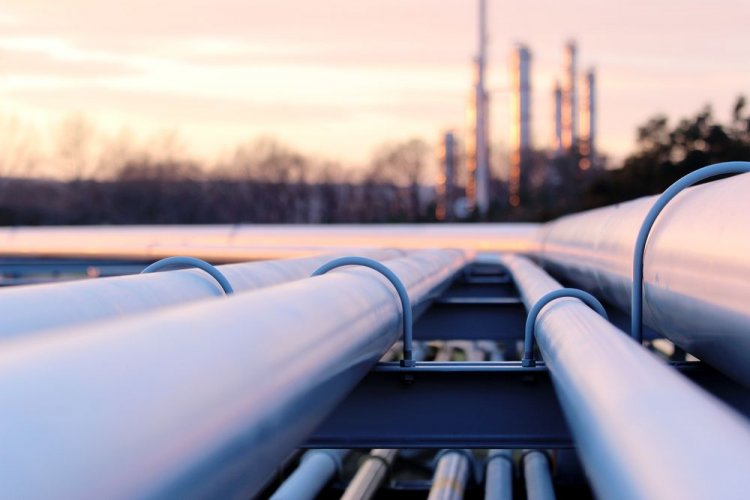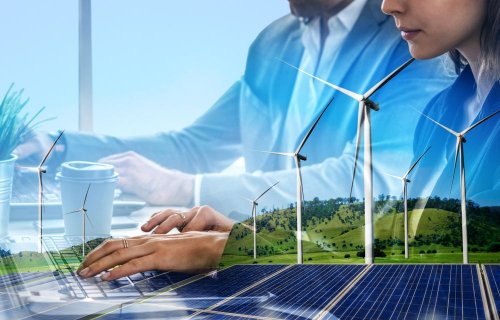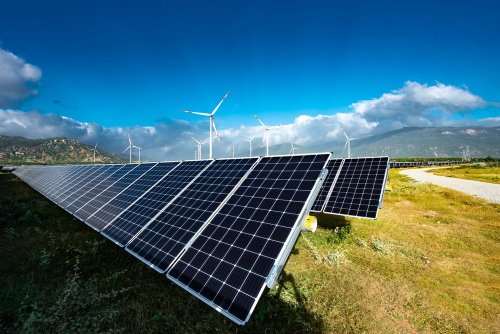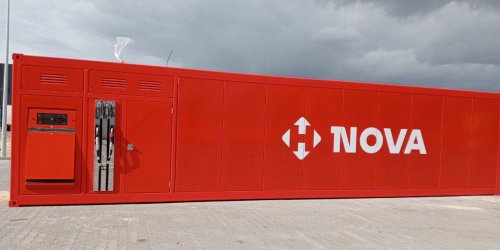Russia's energy companies Gazprom, Lukoil and Rosatom have used lobbying to influence the inclusion of fossil gas and nuclear energy in the EU's taxonomy of sustainable investment.
Such inclusion will make Russia one of the main beneficiaries, according to a new study by Greenpeace France, reports Greenpeace.
The inclusion of fossil gas and nuclear energy will provide additional leverage in the negotiations and funds to finance the war in Ukraine.
The study found that Russian energy companies have met with EU commissioners and senior officials directly or through subsidiaries and lobby groups at least 18 times since the European Commission published its Sustainable Funding Action Plan in March 2018.
In the material he compared such a structure with matryoshka dolls.
According to the report, Russia could earn extra € 4 billion per year from the expansion of gas capacity according to the taxonomy, which will be € 32 billion by 2030. In addition, the inclusion of nuclear energy in the taxonomy will allow Russia's state-owned nuclear energy company Rosatom to receive a share of potential investment in new EU nuclear facilities in the amount of approximately € 500 billion. Rosatom also has strong commercial ties with the European nuclear industry.
"Gazprom, Rosatom and Lukoil have campaigned for gas and nuclear energy to label the EU, strengthening Putin's geopolitical power and making the EU more dependent on Russian energy for decades to come. As the EU Commission prepares to unveil its RePowerEU plan to break free of Russian energy dependence, the exclusion of gas and nuclear energy from the taxonomy is an obvious step. MEPs can do to show Putin that he has taken Russia out of Europe's energy future, " said Ariadne Rodrigo, the EU's Greenpeace sustainable funding activist.
In addition to supplying gas and 20% enriched uranium to the EU, Russia also provides maintenance services to 18 of its nuclear power plants, mainly in Central and Eastern Europe. It also stores a large amount of EU radioactive waste, in particular from France, Germany and Bulgaria.
The European Commission has proposed banning Russian firms from hiring EU lobbying and public relations firms in the future, but EU governments have not yet approved.
Examples of Russian corporate lobbying:
- Gazprom influenced the taxonomy through its German subsidiary, Gazprom Germania, which until recently managed the Nord Stream-2 project on its behalf. Through its subsidiaries, Gazprom was represented at a taxonomy discussion in Brussels by the lobbying associations Gas Infrastructure Europe, GasNaturally and the European Clean Hydrogen Alliance. He is a member of the European Energy Forum and, again, through its subsidiaries, the Brussels Energy Club, two groups that have held behind-the-scenes meetings with EU officials on taxonomy.
- Until March 2022, Lukoil was a member of BusinessEurope, where he held an influential position in the corporate advisory and support group BusinessEurope, which held at least eleven high-level meetings with EU officials that focused exclusively on taxonomies while Lukoil was a member of the association. Lukoil is still a member of FuelsEurope, where taxonomy is one of the main files it lobbies for.
- Rosatom has influenced the taxonomy through its deep ties at all levels of the European nuclear industry, including the French state nuclear energy supplier EDF, and through a joint venture between its subsidiary RAOS Project and the Finnish company Fennovoima for the construction of Hanhikivi 1. (Fennovoima). terminated the contract with the RAOS Project on May 2, 2022).
- Rosatom has also had a significant impact on taxonomy as a board member of the World Nuclear Association, including a platinum sponsor of the 2021 World Nuclear Exhibition, where EU Energy Commissioner Kadri Simson delivered a keynote address.
Greenpeace uses EU transparency registry data and other open sources to document the use of three matryoshka doll lobbying methods to influence EU taxonomy through subsidiaries, joint ventures and industry associations.
In June, the European Parliament's committees on economic and monetary affairs, as well as on the environment, public health and food safety, will vote in a joint session on the inclusion of gas and nuclear energy in the EU taxonomy. Parliament's plenary vote is scheduled for early July, when an absolute majority of MEPs may reject the Commission's plan.
The article noted that the European division of Greenpeace has been campaigning against greenwashing of fossil gas and nuclear energy in the EU system since the plan was first proposed in 2019.
The Greenpeace European Unit warns that simply replacing Russian oil, gas, coal and uranium imports with similar fuels from other countries, such as Saudi Arabia, the United States and Azerbaijan, will only slow down Europe's energy transition and accelerate climate and natural crises. After all, true energy independence can only be achieved through rapid, massive and socially equitable investments in energy saving and home insulation, as well as renewable energy sources and the complete transformation of the transport sector.
We will remind, The EU has unveiled a € 300 billion plan to get rid of energy dependence on Russia.
As EcoPolitics reported earlier, joint EU actions to achieve affordable, safe and sustainable energy within REPowerEU.





